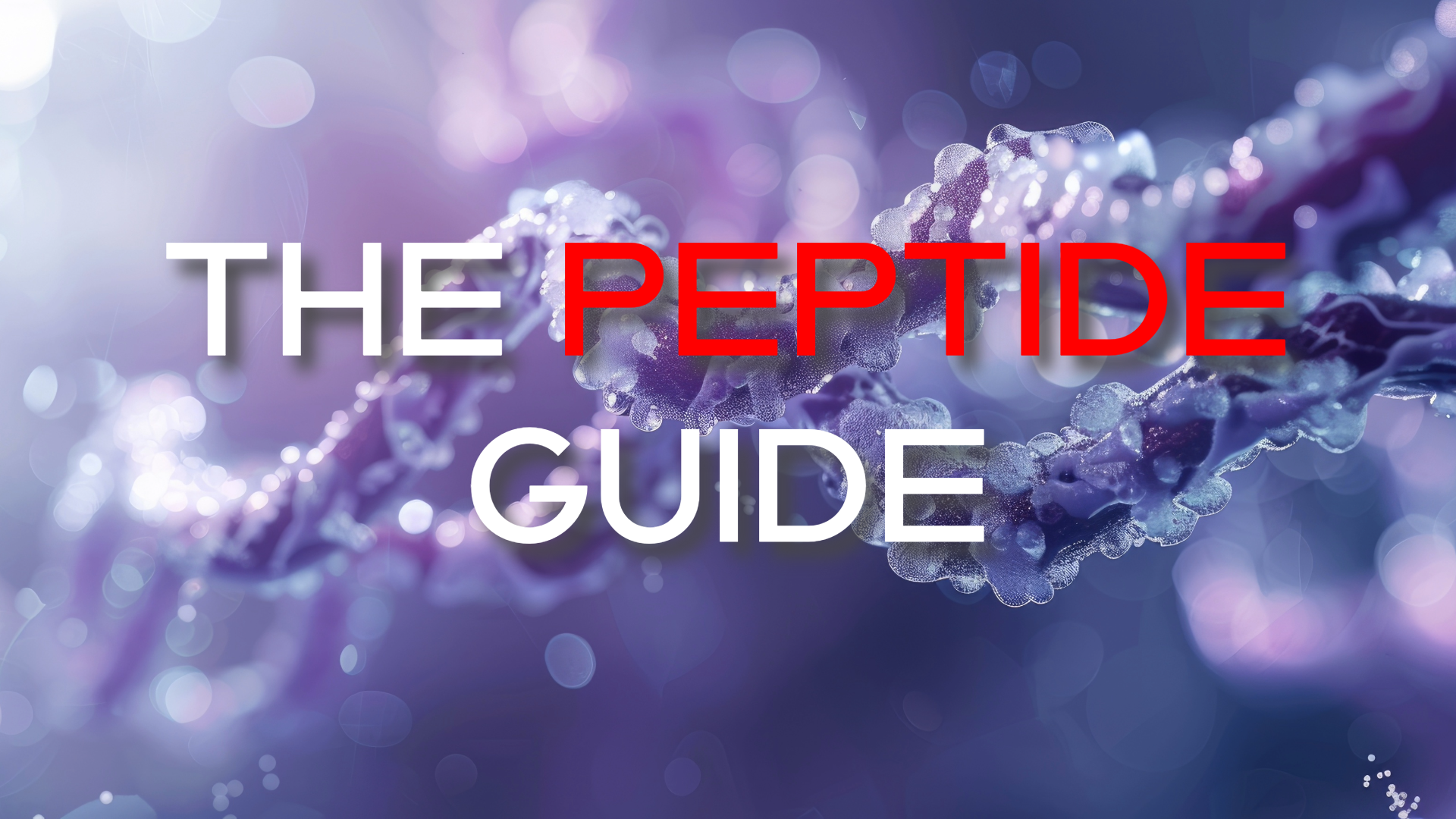Peptides – The New Bio-hacking Frontier?
Are you curious about peptides and eager to learn more? You’re in the right place!
Peptides are an exciting frontier in modern medicine, giving individuals the tools to take control of their health and wellness. They can assist in healing from injuries, burning body fat, enhancing mitochondrial health, and even aiding recovery from traumatic brain injuries.
However, it’s important to note that peptides aren’t mainstream medicine—many are still in the testing stages, or are more common overseas but not yet widely available anywhere. While generally considered safe, using peptides involves a degree of self-experimentation and research.
This guide aims to introduce you to peptides in a simple, straightforward way. It’s a quick overview to help you understand what peptides are, how they work, and their potential benefits.
Please remember, this guide is for informational purposes only and not intended as medical advice.
What Are Peptides?
Peptides are short chains of amino acids linked together by peptide bonds. If you’re familiar with proteins and amino acids, you already know that proteins are large molecules composed of long chains of amino acids. Peptides are essentially smaller versions of proteins, typically consisting of between 2 and 50 amino acids.
Our bodies produce around 7,000 different peptides, each playing a vital role in various biological processes. Most peptides used in supplementation are synthetic versions of those naturally occurring in the body. Unlike some medications, like SSRIs, which are not naturally produced by the body, peptides can be considered more “natural” because they supplement what the body already makes.
This doesn’t mean peptides are entirely risk-free, but their safety profile is generally milder compared to many other drugs, especially psychiatric medications.
How Do Peptides Work?
Peptides are involved in nearly every bodily function. They act as neurotransmitters, hormones, growth factors, ion channel ligands, and even play roles in the immune system. For instance, insulin is a peptide that regulates blood sugar levels and promotes glucose uptake in muscle cells while inhibiting fat breakdown in fat cells. Oxytocin, known as the “bonding hormone,” and adrenaline, the stress hormone, are also peptides.
In essence, peptides are key signaling molecules crucial to numerous biological processes.
When Do People Use Peptides?
The use of peptides varies depending on the condition and desired outcome. Peptides are typically not taken casually; they’re used for specific purposes. With over 7,000 peptides in the human body, they can serve a multitude of functions.
In the biohacker community, some of the most common uses include:
- Recovery from Injury: Peptides like BPC157 and TB500 are often used.
- Growth Hormone Production and Fat Burning: Peptides can help stimulate growth hormone production and aid in fat loss.
- Brain Injury Recovery: Peptides like Semax are explored for their potential benefits.
The most prevalent use is for healing injuries, enhancing fat loss, or as nootropics. Notably, insulin, a well-known peptide, was the first therapeutic peptide discovered and remains widely used today.
Why Aren’t Peptides More Widely Advertised?
As of 2024, you may have noticed some peptides being marketed, such as Ozempic and Wegovy, which are GLP-1 peptides. They mimic the satiety hormone GLP-1, helping to reduce appetite and regulate blood sugar levels.
However, the broader use of peptides for “health enhancement” is less common due to regulatory and patent issues. Peptides are challenging to patent, and the medical and pharmaceutical industries, which are tightly regulated, do not generally support self-prescribed treatments. While this is partly for safety, it’s also because the traditional medical system benefits financially from treating illnesses rather than promoting health independence.
Therefore, peptides that require injection and aren’t approved for human use are usually sold only as research chemicals. Users must do their own research before purchasing and using these substances.
Recommended Peptides
From a personal, non-medical perspective, peptides are particularly useful for healing, especially connective tissue recovery. The two most recommended peptides for this purpose are:
- BPC-157: Known as Body Protective Compound-157, this synthetic peptide has been studied for its ability to accelerate wound healing, repair damaged tissues, and reduce inflammation. It may also have protective effects on the gastrointestinal tract.
- TB-500 (Thymosin Beta-4): Another synthetic peptide, TB-500, plays a role in various cellular processes and has been studied for tissue repair, anti-inflammatory effects, cardiovascular health, and neuroprotection.
How to Use Peptides
For those considering peptides, it’s important to know how to use them properly:
- BPC157: Typically, 300mcg is taken once daily at the site of the injury.
- TB500: Usually administered at 3mg twice a week, not necessarily at the site of the injury.
Both are administered subcutaneously.
How to Inject Peptides
If you’ve acquired peptides and are unsure how to proceed, here’s a quick guide:
- Gather Supplies: You’ll need bacteriostatic water and insulin syringes (50 unit syringes with a 1/2 inch needle are recommended).
- Reconstitute the Peptides: Add the correct amount of bacteriostatic water to the peptide vial. Do this slowly to avoid damaging the peptides, and allow them to mix naturally. Store the reconstituted peptides in the fridge.
- Calculate the Dosage: For example, if you have a 10mg vial of BPC157, you’ll have 10,000mcg in 3ml of solution. This means each 1ml contains 3,333mcg. Using a 100 unit syringe, 10 units will give you about 333mcg.
- Injecting: After drawing the correct dosage, inject subcutaneously, typically around the site of injury.
Remember, this information is for educational purposes only and not intended as medical advice. Always consult with a healthcare professional before starting any new treatment.
Peptides offer exciting potential in the realm of health and wellness, but they require careful consideration and responsible use. By understanding what peptides are and how they can be used, you can make informed decisions about incorporating them into your health regimen.









